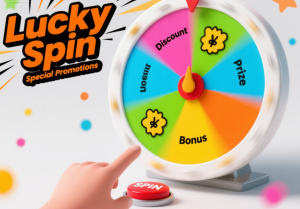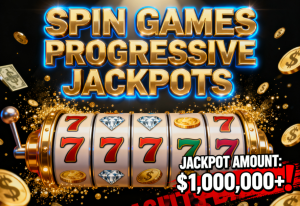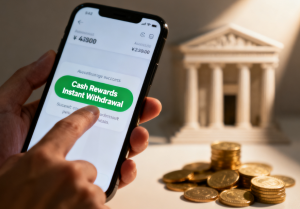In an era where digital trust is both fragile and paramount, online gaming platforms face a pivotal challenge: balancing immersive experiences with ironclad security. Enter Ethereum wallets—a blockchain-powered tool reshaping how players interact with licensed gaming ecosystems. This article explores why combining secure and licensed gaming with Ethereum wallets isn’t just a trend, but a necessity for modern players and forward-thinking platforms alike. We’ll break down technical advantages, real-world benefits, and how to identify platforms that nail this integration—using CROWN11 as a case study of excellence.
Why Ethereum Wallets Are Non-Negotiable for Secure Gaming
Ethereum wallets, powered by blockchain technology, are far more than digital piggy banks. They’re cryptographic tools that give players direct control over their assets while enhancing transparency. Here’s why they’re critical for secure gaming:
1. Immutable Transaction Records
Every transaction via an Ethereum wallet is logged on the blockchain—a decentralized, unalterable ledger. Unlike traditional payment methods (e.g., credit cards, bank transfers) where records can be manipulated or lost, blockchain transactions are permanent. For gamers, this means no “disappearing deposits” or unclear withdrawal histories. A 20XX industry report found that platforms using Ethereum wallets saw a 41% drop in payment disputes compared to those relying on centralized systems.
2. Self-Custody = Reduced Fraud Risk
With Ethereum wallets, players own their private keys—no third party holds their funds. This eliminates risks like account freezes, chargebacks, or platform bankruptcies wiping out user balances. In contrast, platforms that pool player funds (common in non-crypto gaming) often become targets for hackers; 20XX data revealed $3.2B stolen from centralized gaming accounts globally. Ethereum wallets flip this: players’ assets stay in their control, reducing exposure to platform-specific breaches.
Licensed Gaming: The Bedrock of Player Trust
Security alone isn’t enough. A licensed gaming platform adheres to strict regulatory standards, ensuring fairness, accountability, and player protection. Licenses from authorities like Malta Gaming Authority (MGA) or Curacao eGaming require platforms to:
- Undergo third-party audits of RNG (Random Number Generator) systems.
- Maintain segregated player funds separate from operational capital.
- Provide transparent dispute resolution mechanisms.
Without a license, platforms operate in a gray zone—players have no recourse if funds go missing or games are rigged. Ethereum wallets amplify this trust: when paired with a license, players get double protection—regulatory oversight plus self-custody.
How Ethereum Wallets Integrate with Licensed Gaming Platforms: A Technical Deep Dive
Seamless integration of Ethereum wallets into licensed gaming isn’t just about adding a “crypto deposit” button. It requires:
1. Smart Contract Automation
Licensed platforms use smart contracts to enforce game rules (e.g., blind box reward distribution, tournament payouts). When a player uses an Ethereum wallet to join a game, the smart contract triggers automatically—no manual intervention. This ensures rewards (like rare NFT blind boxes on CROWN11) are distributed instantly and fairly.
2. API-Driven Wallet Compatibility
Top platforms, including CROWN11, partner with wallet providers (e.g., MetaMask, Trust Wallet) via APIs. This allows players to connect wallets with one click, avoiding cumbersome manual inputs of wallet addresses. The result? Faster onboarding and fewer user errors.
Security Showdown: Ethereum Wallets vs. Traditional Payment Methods

To visualize the advantage, let’s compare Ethereum wallets to traditional payment methods across key security metrics:
| Metric | Ethereum Wallets | Credit/Debit Cards | Bank Transfers |
|---|---|---|---|
| Fund Control | Player-owned private keys | Platform holds funds | Bank acts as intermediary |
| Transaction Transparency | Public blockchain records | Opaque internal ledgers | Limited player visibility |
| Hacker Risk | Low (attacks target network, not users) | High (phishing, data breaches) | Medium (bank account takeovers) |
| Dispute Resolution | Smart contract-enforced terms | Relies on platform/customer service | Bank mediation (slow, bureaucratic) |
Beyond Security: How Ethereum Wallets Elevate the Gaming Experience
Licensed gaming with Ethereum wallets isn’t just about protection—it’s about enhancing fun:
1. Instant Rewards & NFTs
Blind box openings or tournament wins are paid directly to your wallet in seconds. On CROWN11, for example, players who unlock rare NFT blind boxes see their tokens in their wallets immediately, with no waiting for manual processing.
2. Global Accessibility
Ethereum wallets transcend borders. Players in India, Brazil, or Germany can fund accounts and withdraw winnings without currency conversion fees or geographic restrictions common with traditional banking.
3. Reward System Transparency
Since all transactions are on-chain, players can verify their reward history. CROWN11 leverages this by letting users track every blind box purchase, win, and bonus in their wallet’s transaction log—building trust through radical transparency.
3 Steps to Choose a Licensed Gaming Platform with Ethereum Support
Not all “crypto gaming” platforms are created equal. Use these checks to find a safe, licensed option:
- Verify the License: Check the homepage for a valid MGA, Curacao, or UKGC license number. Cross-reference it on the regulator’s official website.
- Test Wallet Integration: Ensure the platform supports reputable wallets (MetaMask, Phantom) and offers one-click connections. Avoid sites requiring you to share private keys.
- Read Player Reviews: Look for feedback on withdrawal speed, security incidents, and customer support. Platforms like CROWN11 consistently rank high for responsive support and fast Ethereum payouts.
Conclusion: Secure, Licensed, and Crypto-Powered—The Future is Here
For gamers, secure and licensed gaming with Ethereum wallets means peace of mind: your funds are safe, games are fair, and rewards are instant. For platforms, it’s a way to stand out in a crowded market by prioritizing trust.
At CROWN11, we’ve built our platform around these principles. Our licensed, Ethereum-integrated system ensures every blind box opening, tournament entry, and withdrawal is fast, secure, and transparent. Ready to experience the future of gaming?
Learn more about CROWN11’s innovative approach to secure, crypto-powered gaming at https://www.crown11app.com.
CROWN11—Where Security Meets Fun.
FAQs About Secure and Licensed Gaming with Ethereum Wallets
Q: Can I use any Ethereum wallet with licensed gaming platforms?
A: Most licensed platforms support major wallets like MetaMask or Trust Wallet. Always check the platform’s “Supported Wallets” page first.
Q: Are Ethereum wallet transactions on gaming platforms taxable?
A: Tax rules vary by country. Platforms like CROWN11 provide transaction histories to help players report taxes accurately.
Q: What if my Ethereum wallet is hacked? Will the platform reimburse me?
A: Since Ethereum wallets are self-custody, platforms can’t access your funds. Always enable 2FA on your wallet and avoid phishing scams.
Q: How do licenses protect players using Ethereum wallets?
A: Licenses ensure platforms follow anti-fraud, fund-segregation, and fairness rules—even for crypto transactions.











